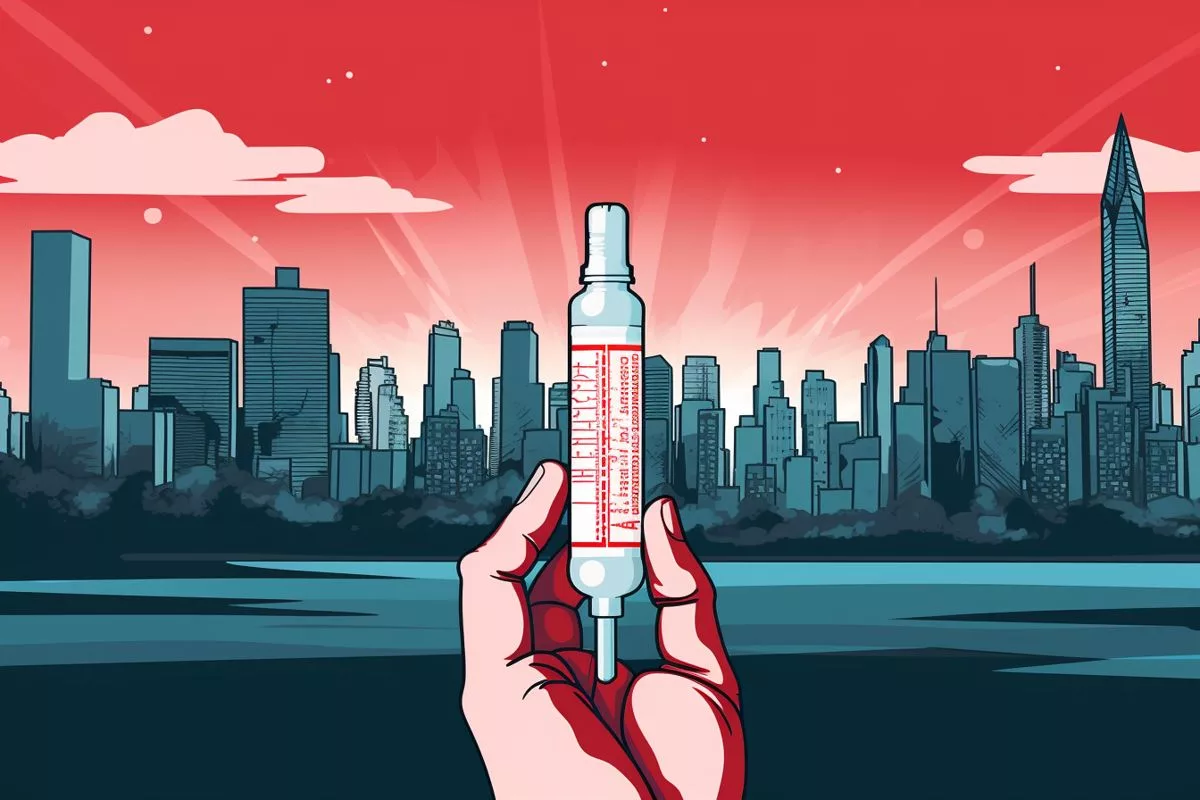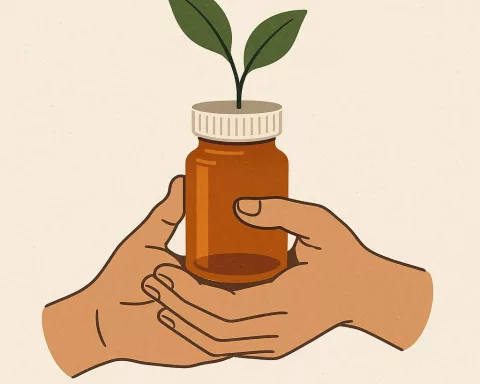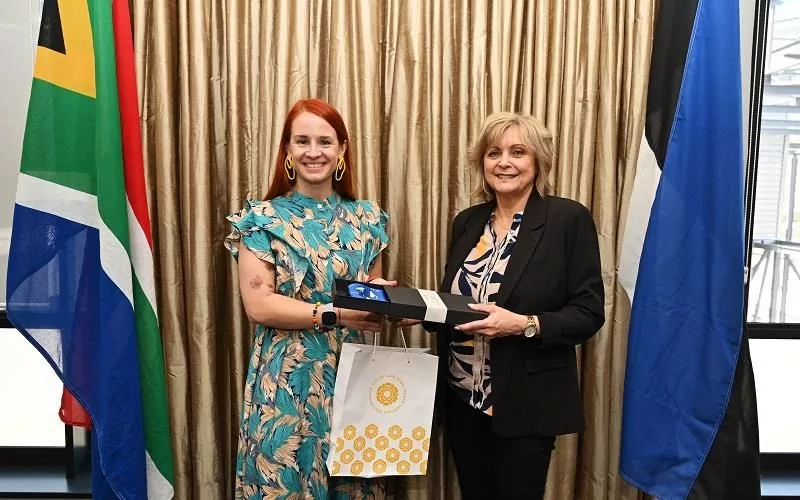The City of Cape Town is taking significant steps to combat HIV and TB by implementing new policies and guidelines, such as Post Exposure Prophylaxis (PEP) and Pre-Exposure Prophylaxis (PrEP) to motivate people to evaluate their HIV status and offer alternatives for those at risk. The City’s approach focuses on social, biomedical, and behavioural aspects and serves as a model for other cities. The City has seen a substantial increase in HIV self-tests, and prevention strategies aim to reduce the untested population. The City’s dedication to combating HIV and TB goes beyond biomedical and behavioural approaches and addresses the social determinants of health.
Joining Hands in the Battle against HIV and TB: The City of Cape Town is taking significant strides in bolstering the fight against HIV and TB by rolling out new policies and guidelines targeting the diseases. Among these are the Post Exposure Prophylaxis (PEP) and Pre-Exposure Prophylaxis (PrEP), offering alternatives for those at risk and motivating them to evaluate their HIV status. The City’s pioneering approach to tackle the HIV and TB pandemics – an approach that is inclusive of social, biomedical, and behavioural aspects – is a potent role model for other cities globally.
Gearing Up for World AIDS Day
As the annual World AIDS Day draws near, it falls on the first day of December. The City is taking significant strides in bolstering the fight against this devastating pandemic by rolling out new policies and guidelines targeting HIV and Tuberculosis (TB). This year’s observance resonates with the theme ‘Let communities lead’, which flawlessly aligns with the National Department of Health’s strategy of promoting HIV prevention via education.
Increasing Awareness and Testing
Of late, the City has noticed a substantial increase in the number of HIV self-tests, with a remarkable count of 50,000 recorded over a period of one and a half years. The purpose of these initiatives is to confront one of the major issues associated with HIV – the untested population, particularly among adolescent girls and young women.
Under the umbrella of the City’s HIV programme, several prevention strategies have been set in motion. Among these are the Post Exposure Prophylaxis (PEP) and Pre-Exposure Prophylaxis (PrEP), offering alternatives for those at risk and motivating them to evaluate their HIV status. The programme also aims at elevating couple testing among expecting and nursing women, enabling crucial access to treatments, and aiding those who are negative in preserving their HIV-free status.
Results and Impact
Data reveal that between April of the previous year and October of the current year, an astonishing total of 47,773 clients took advantage of assisted HIV self-screening at City facilities. Among these, 825 individuals were identified as positive. However, what makes these programmes noteworthy is not just the numbers; they play a crucial role in minimizing stigma and discrimination.
As Councillor Patricia van der Ross, the City’s mayoral committee member for community services and health, elucidated, “These programmes are also vital in broadening access to treatments, offering people at risk options, and encouraging them to ascertain their HIV status. They also assist those who are negative in continuing with prevention.”
Progress with PrEP Implementation
The City has also made significant headway with the application of PrEP at City health facilities. Over the last two years, more than 12,000 individuals have commenced the treatment. It is worth mentioning that this treatment does not involve a lifelong commitment and can be discontinued if an individual’s HIV risk ceases to be high, or they choose to stop it.
To mark World AIDS Day, the City has chalked out a host of events, with the main celebration scheduled to happen in Area North. Staff members from the facility will engage with residents of informal settlements in Bloekombos, sparking conversations with the community early on Friday, 1st December.
Beyond Biomedical Approach
The City’s dedication to the combat against HIV and TB transcends a biomedical and behavioural approach, reaching out to the social determinants of health that play a substantial role in initiating and treating clients. As Councillor Van der Ross pointed out, “We cannot merely treat our way out of these pandemics. We need to address the social determinants of HIV and TB by embracing a comprehensive approach. We must persist in addressing the issue of stigma and discrimination experienced by those living with and affected by HIV and TB.”
Taking the Fight Forward
The City’s pioneering approach to tackle the HIV and TB pandemics – an approach that is inclusive of social, biomedical, and behavioural aspects – is a potent role model for other cities globally. The battle is not just about treating the diseases but also about addressing the root social factors and continuing the fight against the stigma and discrimination faced by those living with HIV and TB. For more information about PEP and PrEP, or to gain more insights into the City’s approach to tackling these issues, one can visit the City’s official page.
What is the City of Cape Town doing to combat HIV and TB?
The City of Cape Town is implementing new policies and guidelines, such as Post Exposure Prophylaxis (PEP) and Pre-Exposure Prophylaxis (PrEP), to motivate people to evaluate their HIV status and offer alternatives for those at risk. The City’s approach focuses on social, biomedical, and behavioural aspects and serves as a model for other cities.
What is the City doing to observe World AIDS Day?
The City is taking significant strides in bolstering the fight against HIV and TB by rolling out new policies and guidelines targeting the diseases. The theme for this year’s observance, ‘Let communities lead,’ flawlessly aligns with the National Department of Health’s strategy of promoting HIV prevention via education. The City has also planned a host of events to mark World AIDS Day, with the main celebration scheduled to happen in Area North.
How is the City increasing awareness and testing for HIV?
The City has noticed a substantial increase in the number of HIV self-tests, with a remarkable count of 50,000 recorded over a period of one and a half years. Under the umbrella of the City’s HIV programme, several prevention strategies have been set in motion, including PEP and PrEP, elevating couple testing among expecting and nursing women, enabling crucial access to treatments, and aiding those who are negative in preserving their HIV-free status.
What impact have these initiatives had?
Data reveal that between April of the previous year and October of the current year, an astonishing total of 47,773 clients took advantage of assisted HIV self-screening at City facilities. Among these, 825 individuals were identified as positive. These programmes not only play a crucial role in minimizing stigma and discrimination but also broaden access to treatments, offer people at risk options, and encourage them to ascertain their HIV status.
How has the City progressed with PrEP implementation?
The City has made significant headway with the application of PrEP at City health facilities. Over the last two years, more than 12,000 individuals have commenced the treatment. This treatment does not involve a lifelong commitment and can be discontinued if an individual’s HIV risk ceases to be high, or they choose to stop it.
How is the City going beyond a biomedical approach to combat HIV and TB?
The City’s dedication to the combat against HIV and TB transcends a biomedical and behavioural approach, reaching out to the social determinants of health that play a substantial role in initiating and treating clients. The City must persist in addressing the issue of stigma and discrimination experienced by those living with and affected by HIV and TB.












